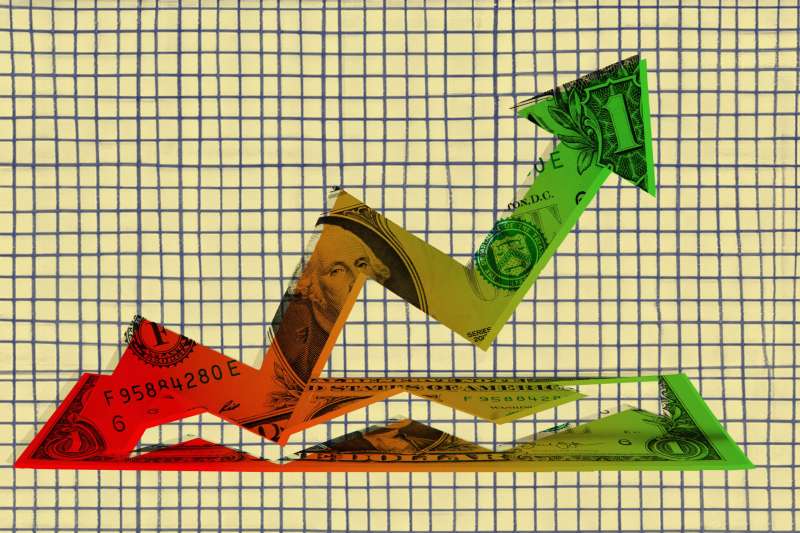Why Fed Rate Hikes May Be on Hold for the Rest of 2023

The Federal Reserve has two more opportunities to raise interest rates in 2023, but many experts think no more hikes are coming — an encouraging development for stock market investors and prospective homebuyers.
The Fed has increased interest rates 11 times since March 2022 to tame inflation. The rise in interest rates during this period has impacted the economy and people's finances in many ways: Mortgage rates have soared above 7%, hurting homebuyers and dampening the housing market in general, while stocks have been jittery, with the S&P 500 index down nearly 20% in 2022. On the other hand, the Fed's rate hikes have helped savers, boosting the APYs of some high-yield savings account rates to upwards of 5%.
The Federal Open Market Committee (FOMC) decided not to raise interest rates in September. At the time, though, most participants indicated that they expected one more rate hike before the end of the year.
This week, several Federal Reserve officials made comments indicating a more cautious tone on raising rates, making it look more likely that the Fed won't raise rates again this year. Lately, many analysts have been predicting the likelihood of a continued pause on rate hikes through the end of 2023.
Gregory Daco, chief economist at consulting firm EY-Parthenon, said in a report Wednesday that “Fed officials are gradually taking comfort with the fact that the July rate hike may have been the last one in this historic tightening cycle.”
There's a split among analysts, however, and others forecast that higher rates will be needed to bring inflation down, and still others say the odds are even for the Fed pausing rate hikes or raising rates at least once more this year.
Will the Fed raise interest rates again in 2023?
The Federal Reserve bases its decisions on a variety of economic data points, but what happens with inflation could be the key factor that determines if the Fed will raise rates again.
On Thursday, the latest consumer price index (CPI) report showed slightly higher-than-expected inflation, as prices rose 0.4% from August to September while annual inflation remained at 3.7%. Jon Maier, Chief Investment Officer at Global X, said in a note that shelter costs are “showing no sign of relenting,” but “the decline in indexes like used cars and trucks hints at a possible easing in certain demand sectors.”
Andrew Patterson, senior economist at Vanguard, said in a reaction to the CPI report that “nuance matters,” explaining that even though headline inflation was high, the Fed will be happy with the drop in the annual core inflation rate from 4.3% last month down to 4.1%. Vanguard still expects there will be one or more rate hikes this cycle.
Chris Zaccarelli, chief investment officer for Independent Advisor Alliance in Charlotte, said in a note Thursday that it’s a “coin flip as to whether or not the Fed raises rates” in three weeks. (The Fed's remaining interest rate decision in 2023 are scheduled for November 1 and December 13.) While inflation remains too high, he said the Fed knows that if it raises interest rates too much there’s the risk of “threatening the economic expansion.”
Sameer Samana, senior global market strategist at Wells Fargo Investment Institute, argues the strength of the labor market points toward higher rates. The unemployment rate is low at 3.8% and job growth in September was the highest since January.
“We do think they will hike again, as inflation is just not coming down fast enough (as demonstrated by yesterday’s [producer price index]/today’s CPI),” Samana said in note.
Why the Fed may be done raising interest rates
Michael Feroli, chief U.S. economist at J.P. Morgan, agreed in a report last week that labor market data “likely will cause discomfort” for the Fed. However, his team expects the Fed to maintain current rates through the end of the year, citing data pointing to tightening financial conditions including recent increases in mortgage rates and U.S. Treasury yields.
Experts say the Fed is signaling it will likely to take a "higher-for-longer" approach to rates, meaning it's not anticipating cutting them anytime soon. According to EY, minutes from the FOMC’s last meeting, which came out this week, indicate the Fed is more interested in the question of how long rates should be high as opposed to whether they should be higher. In their view, that means rates will be kept at the current range of 5.25 to 5.50.
Reacting to the CPI report, Moody’s Analytics economist Matt Colyar said in a note that the new data “likely solidifies a pause when the rate-setting FOMC meets in a few weeks.” The committee won’t get new CPI data between now and then, and “September’s report would have needed to deliver a worrying upside surprise for the rate-setting committee to change course,” Colyar said.
If there’s another rate hike before the end of the year, investors think it’s more likely to happen in December than November, according to the CME Group’s FedWatch Tool.
More from Money:
Best High-Yield Savings Accounts of October 2023
Social Security Benefits Will Rise 3.2% in 2024 — Another Historically High COLA
92% of Americans Would Consider Delaying Dental Care Because of the Cost

